|
If you take the definition of "gold" and use it as a metaphor for value, then you can say anything
of great value is gold. People like to use a variable of the term for when they find themselves in
a great spot, saying, "I'm golden." If you look at their smiles when they say that, you will see
smiles that glitter like gold.
|
| |
|
"Every cloud has a silver lining."
|
| |
|
Talk to any meteorologist and he or she will tell you that clouds so not have linings of any color.
As well, if you are trying to say that every bad situation has something good about it but that good
cannot be seen through the sorrow of the situation, then you are also full of baked cheese. (I used
that term specifically because it is not a cliché using baked cheese and also because a person can
be full of baked cheese if that person has eaten so much baked cheese than he or she cannot consume
any other food.)
|
| |
|
"A penny saved is a penny earned."
|
| |
|
This is so obviously untrue because you can find a penny and save it and though it would be your
penny and you could add it to other financial savings, it is not earned if you do not work for it.
The cliché insinuates that you are not going to spend a penny - it purposely uses the smallest type
of legal tender to make the point - that you worked to obtain but that is a huge assumption. Recent
studies about the different types of legal tender found and not earned also disprove this cliché,
since the penny is not among the top types of legal tender people find because other people have
lost it. The twenty dollar bill, actually, is the most common denomination of legal tender found in
any one year between the years of 1925 to the present.
|
| |
| Frank Cotolo can be found hosting the talk and interview programme Cotolo Chronicles. You
can send him an e-mail at this address: frank@148.ca.
|





 Copyright © 2009-2017 SRN Mediaworks Productions, in association with Frank Cotolo.
Copyright © 2009-2017 SRN Mediaworks Productions, in association with Frank Cotolo.